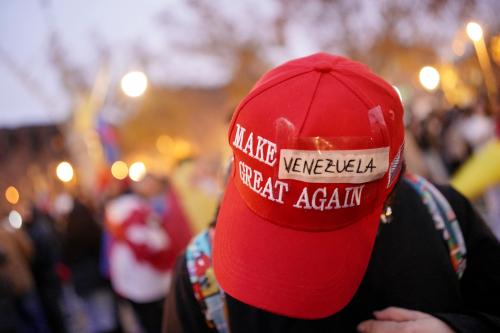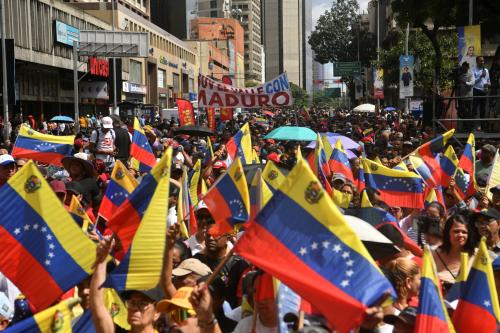

10:00 am EDT - 11:30 am EDT
Past Event
10:00 am - 11:30 am EDT
1775 Massachusetts Avenue N.W.
Washington, DC
20036
The current mass exodus of Venezuelans into neighboring Colombia, Brazil, and other South American countries has the potential to wreak havoc in border communities and budgets. Official figures place the number of Venezuelan residents in Colombia at 600,000 and in Brazil at around 40,000, with observers on the ground estimating the real numbers to be much higher. To manage such an enormous challenge, the international community—including the U.N. system, international institutions, and other private, public, and multilateral stakeholders—will have to work together to mobilize the necessary resources and forge a collective response that provides relief to suffering Venezuelans fleeing their country.
On April 13, the Brookings Global-CERES Economic and Social Policy in Latin America Initiative (ESPLA) and the Latin America Initiative at Brookings co-hosted a discussion with regional and humanitarian experts on the Venezuelan refugee crisis and the national, regional, and global responses.
Following the conversation, panelists took audience questions.


Scott R. Anderson, Caitlin Talmadge
January 8, 2026

Ehsan Habibpour, Sharan Grewal
January 8, 2026

Scott R. Anderson, Sarah A. Binder, Richard C. Bush, Vanda Felbab-Brown, Daniel S. Hamilton, Kari Heerman, Jonathan Katz, Patricia M. Kim, Suzanne Maloney, Steven Pifer, Dafna H. Rand, Douglas A. Rediker, Melanie W. Sisson, Constanze Stelzenmüller, Andrew Yeo +10 more
January 7, 2026